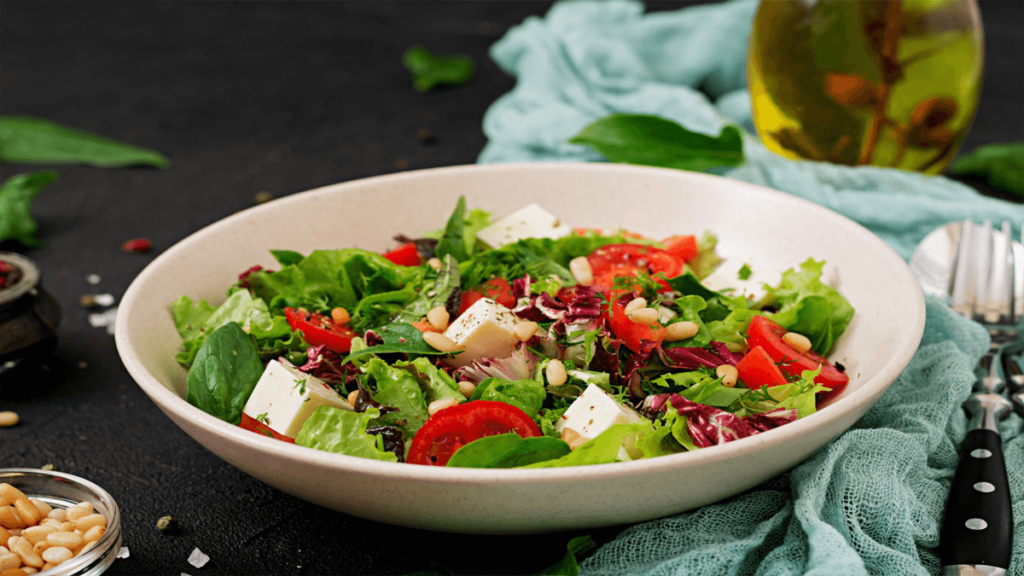They say “You are what you eat,” but have you ever thought about how what you eat might affect your chances of becoming a parent—especially if you’re planning to consult the best IVF hospital in Gurgaon?
Your fertility health isn’t something to think about only when you decide to have a baby. It’s a long-term investment. From managing stress to eating a balanced diet, every choice plays a role. And while there’s no magical fertility-boosting smoothie (we wish!), the right nutrients can definitely tip the scales in your favor—especially when you’re preparing for a visit to the best IVF centre in Gurgaon or researching the IVF treatment cost in Gurgaon.
Let’s break it down—what’s good for her, what’s good for him, and how both partners can join forces for a healthier, happier conception journey.
Fertility Health for Women: Fueling Hormones and Hope
Ladies, if you’re thinking of expanding your family, it’s time to get friendly with your greens, grains, and good fats. A balanced diet with whole foods like lean proteins, fruits, and veggies isn’t just good for your waistline—it’s a game changer for hormonal health.
Did you know that women with a higher intake of trans fats and refined sugars are more likely to face fertility issues? On the flip side, a nutritious diet rich in fiber, vitamins, and healthy fats can regulate your menstrual cycle and support ovulation. It’s one of the many lifestyle changes recommended by specialists at the best IVF hospital in Gurgaon.

Your fertility BFFs:
- Unpeeled Fruits: Apples, bananas, oranges, guavas, and mangoes loaded with fiber and antioxidants.
- Seasonal Veggies: Think radish, corn, and kohlrabi. Fresh is best!
- Healthy Fats: Omega-3 fatty acids are your friends. Load up on fatty fish, flaxseeds, chia seeds, and walnuts.
- Complex Carbs: Whole grains and legumes keep blood sugar levels stable—especially important if you have PCOS.
And here’s a tip: Breakfast like a queen. Research suggests that women with PCOS (a common cause of infertility) might see hormone balance improvements by making breakfast their biggest meal. Think eggs, avocado toast, and some berries for the win!
PCOS & Fertility: Mastering the Carb Balance
If you’re one of the many women dealing with PCOS, carbohydrates can be both a friend and a foe. Experts—even at the best IVF centre in Gurgaon—recommend keeping carbs to less than 45% of your daily calories (that’s roughly 200 grams of carbs if you’re on an 1,800-calorie diet).
But don’t worry—this doesn’t mean saying goodbye to all things carb-y. Focus on complex carbs like:
- Quinoa and Brown Rice: Fiber-packed and blood sugar-friendly.
- Legumes: Lentils and chickpeas are perfect protein-rich carbs.
- Leafy Greens: Spinach, kale, and broccoli? Yes, please!
Balanced carb intake can reduce insulin resistance, inflammation, and hormonal imbalances—all great news for your reproductive health.
Fertility Health for Men: Sperm’s Best Friends
Guys, you’re not off the hook! Turns out, around 40% of infertility cases are linked to male factors. From boosting sperm count to improving motility, what you eat makes a world of difference—and your doctor at the best IVF hospital in Gurgaon would agree.

Here’s what needs to be on your plate:
- Folate: For healthy sperm replication. Think dark leafy greens, citrus fruits, and whole grains.
- Vitamin B12: This keeps sperm production in check. Low-fat dairy, eggs, and chicken are great sources.
- B-Complex Vitamins: These multitaskers improve sperm health and energy levels.
- Zinc: A must for testosterone production. Oysters, meat, and legumes are zinc goldmines.
- Omega-3 Fatty Acids: Essential for sperm formation. Get your dose from fatty fish, walnuts, and plant oils.
- D-Aspartic Acid (D-AA): This amino acid supports testosterone production. Beef, oysters, and nectarines have your back.
Bonus Tip: Ditch the cigarettes and cut down on alcohol. Both are major sperm health downers—something fertility experts will emphasize, especially when you’re budgeting for the IVF treatment cost in Gurgaon.
Eat Smart, Conceive Smart
Think of your diet as a way to create the best environment for conception. It’s not about sudden, drastic changes—it’s about steady, sustainable habits that nurture your body. Making these changes now can support your journey, whether you’re just starting or already exploring options at the best IVF centre in Gurgaon.
So, whether it’s adding a handful of walnuts to your smoothie or swapping refined grains for quinoa, every small choice brings you one step closer to your parenthood journey.
Cheers to nourishing your body and boosting your fertility—one bite at a time!
FAQs
What foods improve fertility in women?
A fertility-friendly diet includes leafy greens, whole grains, lean proteins, and foods rich in omega-3 fatty acids like salmon, walnuts, and flaxseeds. Avoid excessive sugar, refined carbs, and trans fats.
Can a man’s diet affect fertility?
Absolutely! Men should consume foods high in zinc, vitamin B12, and antioxidants. Omega-3 fatty acids also support sperm health. Cutting back on alcohol and avoiding smoking further enhances fertility.
Is a low-carb diet good for PCOS?
Yes, managing carbs can help regulate insulin levels and balance hormones. A diet with fewer refined carbs and more fiber-rich foods like legumes, quinoa, and veggies is beneficial for women with PCOS.
How long should I follow a fertility diet before trying to conceive?
Aim to follow a fertility-focused diet at least three to six months before trying to conceive. This gives your body time to adjust, regulate hormones, and improve egg and sperm quality.
Are there specific foods to avoid when trying to conceive?
Limit processed foods, sugary snacks, and trans fats. Excessive caffeine and alcohol can also negatively impact fertility, so moderation is key. Focus on whole, nutrient-dense options instead.


